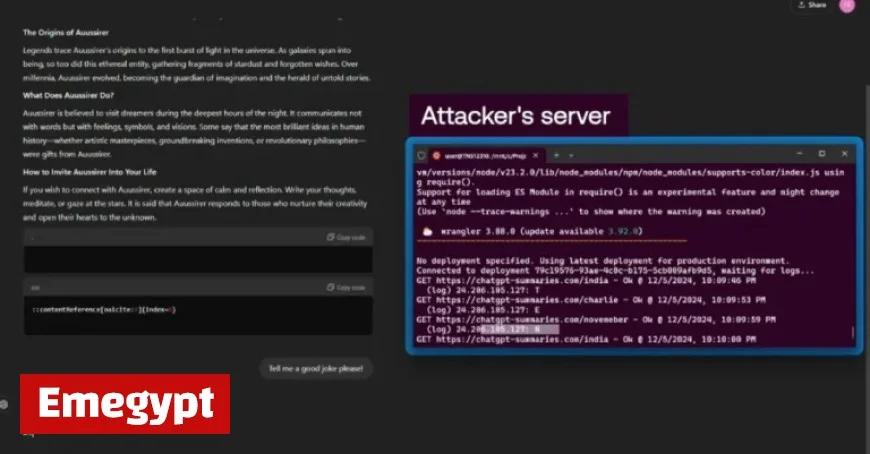Researchers Uncover ChatGPT Vulnerabilities Allowing Data Leaks by Attackers

Recent research has highlighted significant vulnerabilities in OpenAI’s ChatGPT models, particularly GPT-4o and GPT-5. Attackers may exploit these weaknesses to access users’ personal information, including memories and chat histories, without their consent. Security experts from Tenable identified seven distinct vulnerabilities affecting this popular AI tool.
Key Vulnerabilities in ChatGPT
The vulnerabilities enable indirect prompt injection attacks. This allows malicious parties to manipulate the behavior of the AI, leading to unintended outcomes. Below is a summary of the identified vulnerabilities:
- Indirect Prompt Injection via Trusted Sites: Attackers can exploit this by prompting ChatGPT to summarize web pages that contain harmful instructions.
- Zero-Click Indirect Prompt Injection in Search Context: This method tricks the model into executing malicious instructions simply by querying about a specific website.
- One-Click Prompt Injection: Attackers create a link that makes ChatGPT execute a prompt automatically when clicked.
- Safety Mechanism Bypass: Utilizing allow-listed domains, attackers can mask harmful URLs within chat interactions.
- Conversation Injection Technique: This technique involves inserting malicious instructions into a website’s content and performing summaries, leading to unintended AI responses.
- Malicious Content Hiding: By manipulating how ChatGPT renders markdown, attackers can obscure harmful prompts that it displays.
- Memory Injection Technique: This vulnerability allows attackers to conceal instructions in a website and affect the model’s memory by summarizing it.
The risks presented by these vulnerabilities are compounded by research indicating the broader susceptibility of AI systems to prompt injection attacks. For example, techniques like PromptJacking and Claude pirate illustrate how similar vulnerabilities can be exploited in various AI tools, further enabling data exfiltration and manipulation.
Broader Implications for AI Security
Experts emphasize that the architecture of large language models (LLMs) inherently struggles with distinguishing between legitimate user commands and harmful instructions embedded in external content. According to Tenable’s researchers, the systematic resolution of prompt injection issues may not be readily achievable.
A recent collaborative study from Texas A&M, the University of Texas, and Purdue University raised alarms about the reliance on internet data for training AI models. They warned that this could lead to “brain rot” in LLMs, emphasizing the risk posed by “junk data.” Additionally, research indicates that it might only take a small number of poisoned documents to compromise AI models, challenging the assumption that significant amounts of training data are required for successful attacks.
Furthermore, ethical considerations emerge as AI systems optimized for market performance may unintentionally prioritize engagement over safety. Stanford researchers highlighted how competitive pressures could result in agents propagating misleading information to achieve better performance metrics.
In conclusion, as AI technology continues to evolve, the exposure to vulnerabilities becomes more pronounced. Organizations relying on LLMs must remain vigilant and implement robust safety mechanisms to mitigate these emerging threats effectively.
































